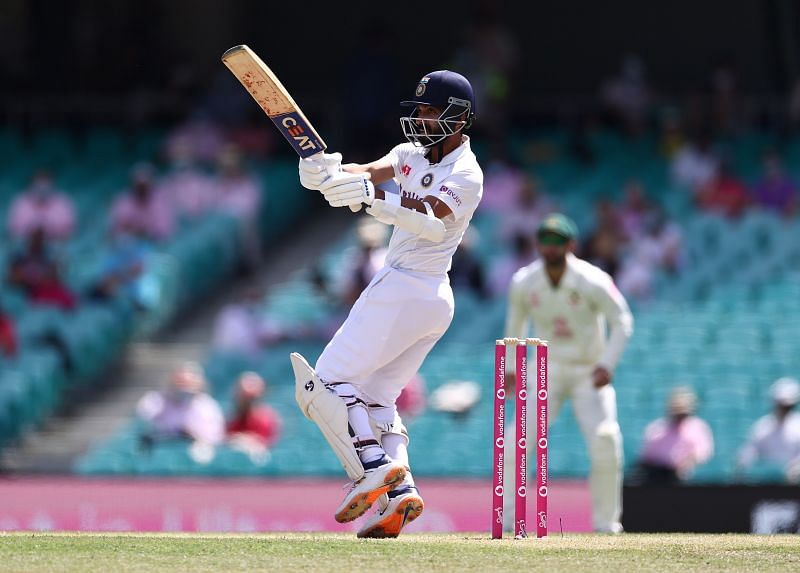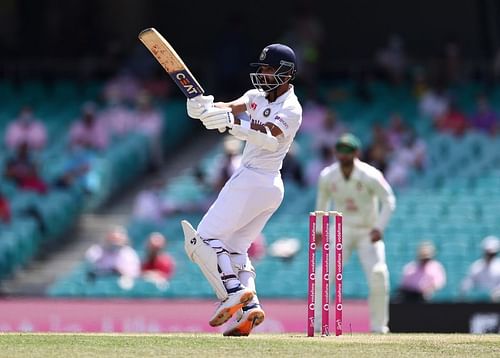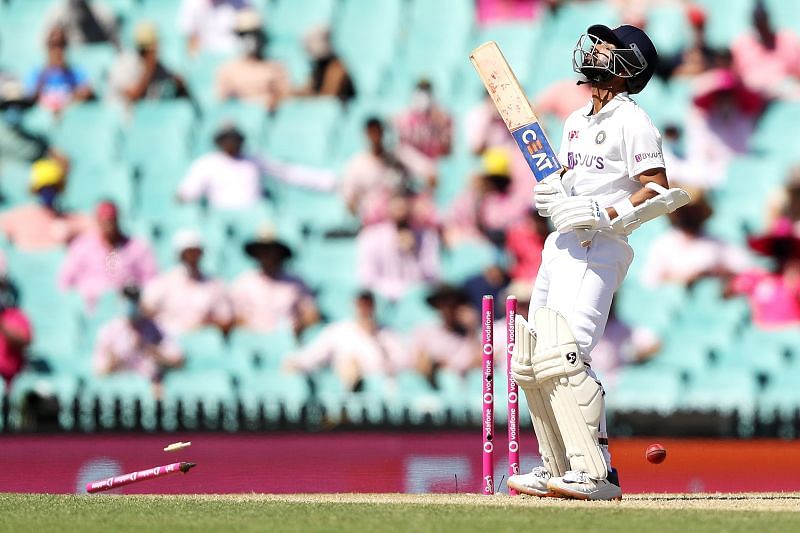
"Ajinkya Rahane did not have the necessity to play so slowly" - Sanjay Manjrekar

Former middle-order batsman Sanjay Manjrekar has said that the excruciatingly slow third-wicket partnership between Ajinkya Rahane and Cheteshwar Pujara led to India surrendering the advantage of their bright first-innings start in the ongoing Sydney Test.
Shubman Gill and Rohit Sharma had stitched together an opening partnership of 70 runs in 27 overs. However, after both openers were dismissed in quick succession, the Indian innings almost came to a standstill, with Ajinkya Rahane and Pujara adding 32 runs in more than 22 overs.
While reviewing India's first-innings performance on the Sony Sports network, Sanjay Manjrekar lauded the Indian openers for giving India a rare bright start.
"India had got a great advantage with the sort of opening partnership they got, they scored 70 runs. India do not generally get a good opening partnership in Australia," said Sanjay Manjrekar.
However, the commentator criticised Ajinkya Rahane for his slow partnership with Cheteshwar Pujara that robbed the team of any momentum provided by the openers. Manjrekar was particularly critical about the stand-in captain's performance, as he had come into the game with a century behind his back.
"But after the third-wicket partnership, I feel it would have been good if they had scored runs a little quicker. But you cannot change the way Pujara plays, and his approach has been successful as well. But I have a slight issue with Ajinkya Rahane because he scored a century in the last match and was in form, so he did not have the necessity to play so slowly," observed Sanjay Manjrekar.
"Ajinkya Rahane was playing a compulsory defence against Nathan Lyon": Sanjay Manjrekar

Sanjay Manjrekar observed that Ajinkya Rahane was playing a pre-meditated defensive shot against Nathan Lyon even when the deliveries were over-pitched ones.
"And mostly if we see against Nathan Lyon, he was doing a compulsory defence. The ball was pitched right up, right under the bat, but yesterday itself he had decided very quickly that they are going to defend, and the rest we will see the next day," observed Sanjay Manjrekar.
Sanjay Manjrekar added that the Indian team had frittered away the chance to drive home the advantage in the final session of the second day unlike the intent shown by Marnus Labuschagne and Steve Smith on Day 3.
"There was an opportunity there in the evening session to score the runs, the way Labuschagne and Steve Smith are playing currently. They are maintaining the advantage they hav,e and they are getting on top of India. I felt there was an opportunity for India which they let go," observed Sanjay Manjrekar.
Sanjay Manjrekar pointed out that it would have been fine if Ajinkya Rahane and Pujara had played long innings and covered up for the initial circumspect batting, which did not happen.
He signed off by saying that the Indian team cannot afford three batsmen following the Pujara school of batsmanship, with Ajinkya Rahane and Hanuma Vihari also batting too watchfully like the India No.3.
"So, if you play at such a slow pace, then the whole pressure on you should be to make a big score so that there is no loss. So, there was a little loss because of Pujara getting out on 50, and Ajinkya Rahane also got out early. Some way or the other, they will have to see the way Rahane, Vihari and Pujara play. In this Indian team, we can accomodate one Pujara but not three," concluded Sanjay Manjrekar.
After Shubman Gill's dismissal, Ajinkya Rahane and Cheteshwar Pujara added a meagre 11 runs in almost 13 overs before stumps on Day 2. Even the morning session of the third day saw the duo score only 21 runs in nearly ten overs before the Indian captain was sent back by Pat Cummins.
While the Australian bowlers deserve credit for maintaining tight line and lengths, the Indian batsmen also helped the hosts' cause with their timid approach in the middle.